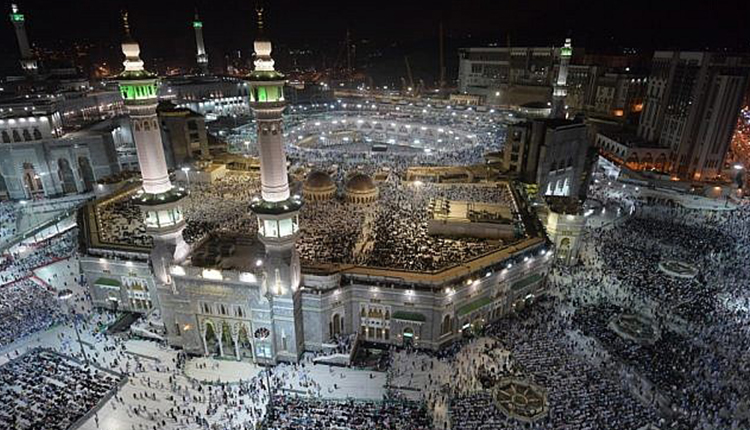Saudi Arabia on Thursday halted travel to the holiest sites in Islam over fears about a viral epidemic just months ahead of the annual hajj pilgrimage, a move that came as the Mideast has over 240 confirmed cases of the new coronavirus.
The extraordinary decision by Saudi Arabia stops foreigners from reaching the holy city of Mecca and the Kaaba, the cube-shaped structure the world’s 1.8 billion Muslims pray toward five times a day. The decision also affected travel to Prophet Muhammad’s mosque in Medina. Authorities also suspended entry to the kingdom to those with tourist visas from nations affected by the new virus.
The decision showed the worry about the outbreak potentially spreading into Saudi Arabia, whose oil-rich monarchy stakes its legitimacy on protecting Islam’s holy sites.
The epicenter in the Mideast’s most-affected country, Iran, appears to be in the holy Shiite city of Qom, where the faithful in reverence reach out to kiss and touch a famous shrine. Iran now has the highest death toll from the virus _ 22 dead from among 143 confirmed cases _ outside of China, where the outbreak began.
The tiny, oil-rich nation of Kuwait announced a sudden jump to 43 cases from 26 on Thursday as well, all linked to travelers who recently came from Iran.
There have been no confirmed cases of the new coronavirus in Saudi Arabia amid the outbreak.
“Saudi Arabia renews its support for all international measures to limit the spread of this virus, and urges its citizens to exercise caution before traveling to countries experiencing coronavirus outbreaks,” the Saudi Foreign Ministry said in a statement announcing the decision. “We ask God Almighty to spare all humanity from all harm.”
Disease outbreaks always have been a concern surrounding the hajj, required of all able-bodied Muslims once in their life, especially as pilgrims come from all over the world. The earliest recorded outbreak came in 632 as pilgrims fought off malaria. A cholera outbreak in 1821 for instance killed an estimated 20,000 pilgrims. Another cholera outbreak in 1865 killed 15,000 pilgrims and then spread worldwide.
More recently, Saudi Arabia faced the danger from another coronavirus, one that caused the Middle East respiratory syndrome, or MERS, which jumped from ill camels to humans. The kingdom increased its
